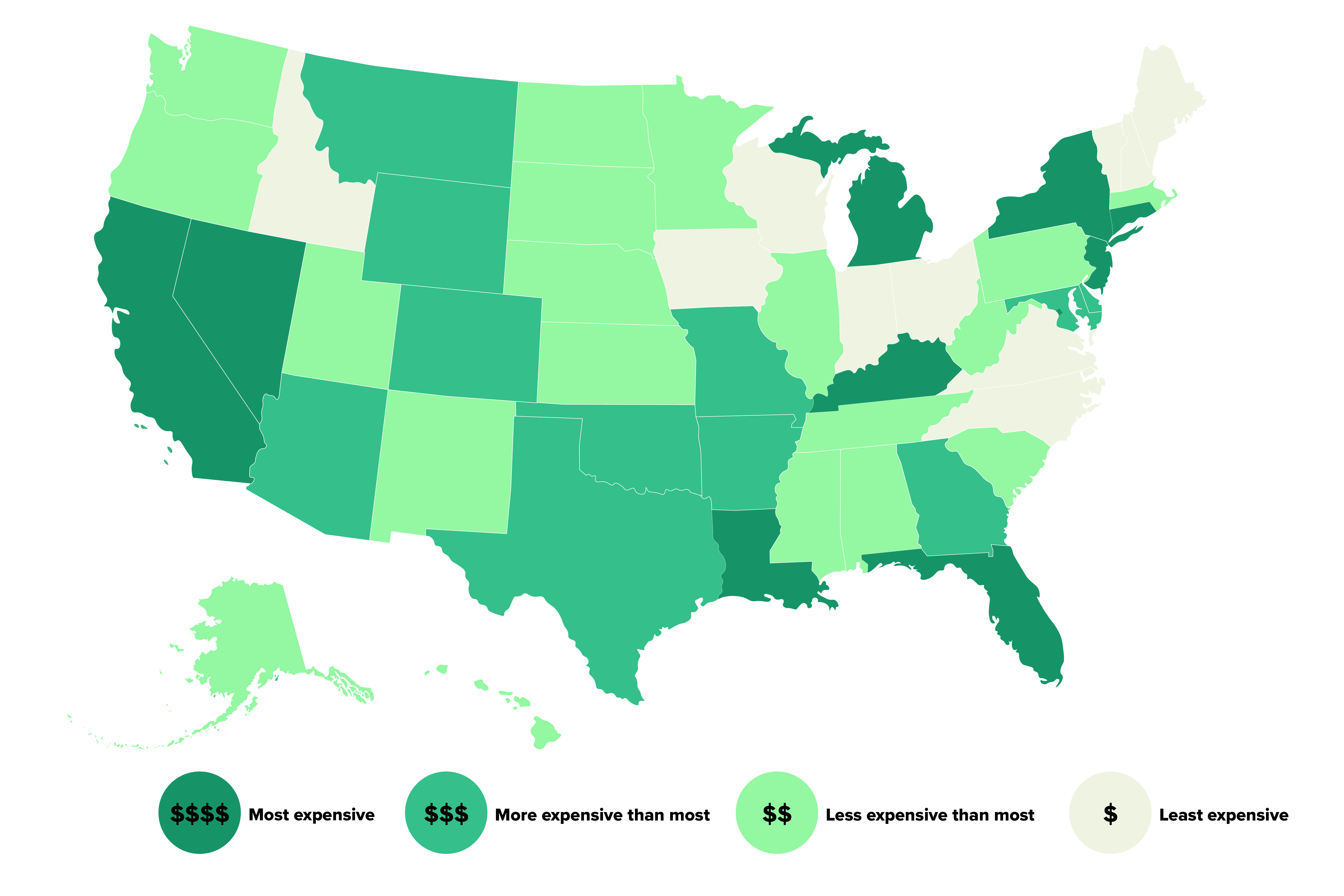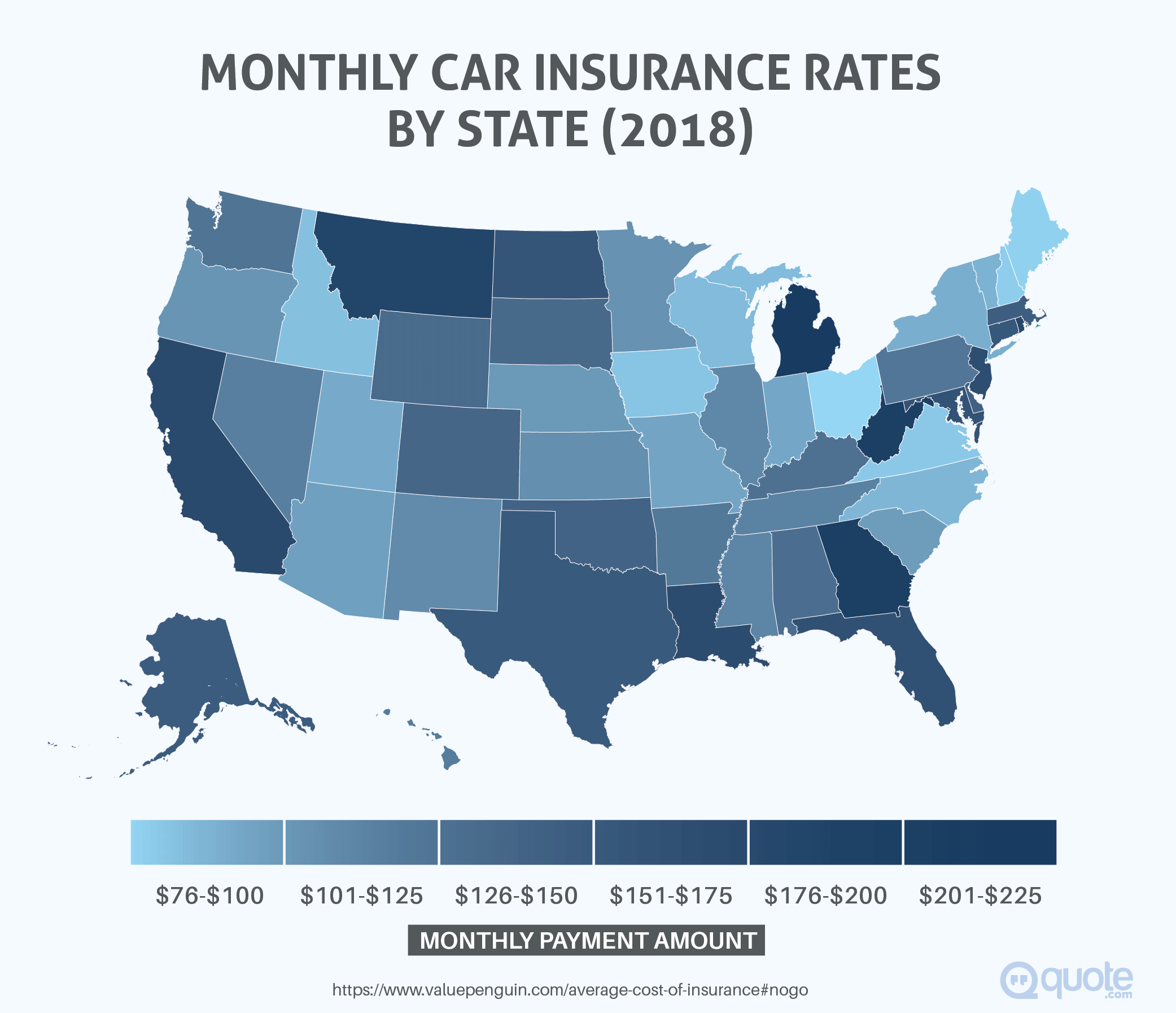Understanding State-Specific Insurance Laws: Can I Get Car Insurance In Another State

Can i get car insurance in another state – Each state in the U.S. has its own set of insurance laws, which can significantly impact the cost and coverage of your car insurance. Understanding these differences is crucial when considering getting car insurance in another state, as it can affect your financial responsibility and legal protection in the event of an accident.
Differences in Insurance Regulations
State insurance regulations vary widely, covering aspects such as minimum liability coverage requirements, available coverage options, and the process for filing claims.
Minimum Liability Coverage Requirements
The minimum liability coverage required by each state dictates the minimum amount of financial protection you must have to cover damages or injuries to others in an accident. These requirements typically include:
- Bodily Injury Liability:Covers medical expenses and lost wages for injuries caused to others in an accident.
- Property Damage Liability:Covers damage to another person’s property, such as their vehicle or other assets.
For example, in California, the minimum liability coverage requirements are $15,000 per person and $30,000 per accident for bodily injury and $5,000 for property damage. However, in Texas, the minimum requirements are $30,000 per person and $60,000 per accident for bodily injury and $25,000 for property damage.
Uninsured/Underinsured Motorist Coverage
This coverage protects you in case you are involved in an accident with a driver who is uninsured or underinsured. The coverage helps pay for your medical expenses and property damage if the other driver cannot afford to cover the costs.
Other Coverage Options
States also vary in the types of coverage options available to drivers, such as:
- Collision Coverage:Covers damage to your vehicle in an accident, regardless of fault.
- Comprehensive Coverage:Covers damage to your vehicle from non-accident events, such as theft, vandalism, or natural disasters.
- Personal Injury Protection (PIP):Covers your own medical expenses and lost wages, regardless of fault.
The availability and cost of these optional coverages can differ significantly from state to state.
Implications of Driving in a Different State
Driving in a state with different insurance laws than your home state can have several implications:
- Insufficient Coverage:Your home state’s minimum liability coverage may not meet the requirements of the state you are driving in, leaving you financially vulnerable in case of an accident.
- Legal Consequences:Driving without the required minimum insurance in another state can result in fines, license suspension, or even jail time.
- Claim Disputes:If you are involved in an accident in another state, your insurance company may argue that your coverage is not sufficient to cover the damages based on the other state’s laws.
Therefore, it is essential to research the insurance laws of the state you plan to drive in and ensure your coverage meets the minimum requirements.
Residency Requirements for Car Insurance

Insurance companies require you to be a resident of the state where you’re applying for car insurance. This is because state insurance laws and regulations vary, and insurance companies need to ensure they’re complying with the laws of the state where you reside.
Proof of Residency
To establish residency, insurance companies typically require documentation that proves you live in the state. This can include:
- Driver’s License:Your driver’s license should reflect your current address. If you’ve recently moved, you’ll need to update your license to reflect your new address.
- Utility Bills:Recent utility bills (e.g., gas, electric, water, internet) showing your name and address can be used as proof of residency.
- Lease Agreement or Mortgage Statement:A copy of your lease agreement or mortgage statement with your name and address serves as strong evidence of residency.
- Voter Registration Card:Your voter registration card should indicate your current address.
- Bank Statements:Bank statements showing your address can be used as proof of residency.
Consequences of Misrepresenting Residency, Can i get car insurance in another state
Misrepresenting your residency to obtain car insurance can have serious consequences. If an insurance company discovers that you provided false information, they may:
- Cancel your policy:They may terminate your insurance policy, leaving you without coverage.
- Refuse to pay claims:If you have an accident, they may refuse to pay for damages or injuries, leaving you financially responsible.
- Charge penalties:They may impose penalties or fines for misrepresenting your residency.
- Report you to state authorities:They may report your actions to state insurance regulators, leading to further consequences.
The Process of Obtaining Out-of-State Car Insurance

Obtaining car insurance in a state where you are not a resident requires a specific process. It is crucial to understand the regulations and requirements of the state where you plan to insure your vehicle. This section Artikels the steps involved in securing out-of-state car insurance, tips for finding suitable providers, and the process of transferring your existing policy.
Steps Involved in Getting Out-of-State Car Insurance
The process of obtaining car insurance in a state where you are not a resident typically involves these steps:
- Research and Compare Providers:Start by researching insurance companies that offer coverage in the state you are planning to insure your vehicle. Consider factors such as coverage options, pricing, customer service, and financial stability. Utilize online comparison tools to get quotes from multiple providers and identify the best options for your needs.
- Gather Required Information:Prepare the necessary documentation, including your driver’s license, vehicle registration, proof of residency in the new state, and information about your driving history. This information is essential for the insurance company to assess your risk and determine your insurance premium.
- Contact Insurance Providers:Reach out to insurance providers that offer coverage in the state where you plan to insure your vehicle. Discuss your specific needs, coverage requirements, and get a quote for the desired coverage. Be transparent about your non-resident status, as some providers may have specific policies for out-of-state residents.
- Review Policy Details:Carefully review the insurance policy documents, including the coverage options, premium costs, deductibles, and exclusions. Ensure you understand the terms and conditions before signing the policy.
- Make Payment and Obtain Proof of Insurance:Once you have chosen a provider and agreed on the policy terms, make the required payment. You will receive proof of insurance, which is crucial for legal driving in the new state.
Tips for Finding Insurance Providers that Offer Coverage in Multiple States
- Utilize Online Comparison Tools:Online comparison tools allow you to get quotes from multiple insurance providers simultaneously, saving time and effort. These tools often filter results based on your location and coverage requirements, helping you find providers offering coverage in your desired state.
- Check Insurance Provider Websites:Visit the websites of insurance companies you are considering and check their coverage areas. Many providers list the states they operate in, providing clear information about their coverage availability.
- Contact Insurance Agents:Consult with insurance agents specializing in multi-state coverage. They can provide guidance on finding suitable providers, understand your specific needs, and offer personalized recommendations.
- Consider National Insurance Companies:National insurance companies often have broader coverage areas and may offer policies in multiple states. These companies typically have a strong online presence and are easily accessible for quotes and policy information.
Transferring Your Existing Insurance Policy to a New State
- Inform Your Current Insurance Provider:Contact your current insurance provider and inform them about your move to a new state. Discuss the possibility of transferring your existing policy or obtaining a new policy that covers you in the new state. They may have specific procedures for policy transfers.
- Provide Necessary Documentation:Your insurance provider may require specific documentation to process your policy transfer. This may include proof of residency in the new state, your driver’s license, and vehicle registration.
- Review Policy Changes:During the transfer process, carefully review any changes to your policy, including coverage options, premiums, deductibles, and exclusions. Ensure you understand the new terms and conditions before confirming the transfer.
- Obtain New Proof of Insurance:After your policy is transferred, your insurance provider will provide you with new proof of insurance documents reflecting your coverage in the new state. Ensure you keep these documents readily available for legal driving purposes.
FAQ Resource
What happens if I get into an accident while driving in another state with insurance from my home state?
Your home state’s insurance policy should cover you in most cases, but it’s important to understand the specifics of your policy and any potential limitations. It’s always a good idea to contact your insurance provider to confirm coverage details.
Can I get insurance for a car I own in another state while living in a different state?
Yes, you can typically get insurance for a car you own in another state while living in a different state. However, you may need to provide additional documentation to prove ownership and residency. Contact insurance providers to discuss your specific situation.
What are the benefits of having car insurance in the state where I live?
Having car insurance in the state where you live offers several benefits, including compliance with local laws, access to local repair shops and services, and potentially lower premiums due to local discounts and rate structures.